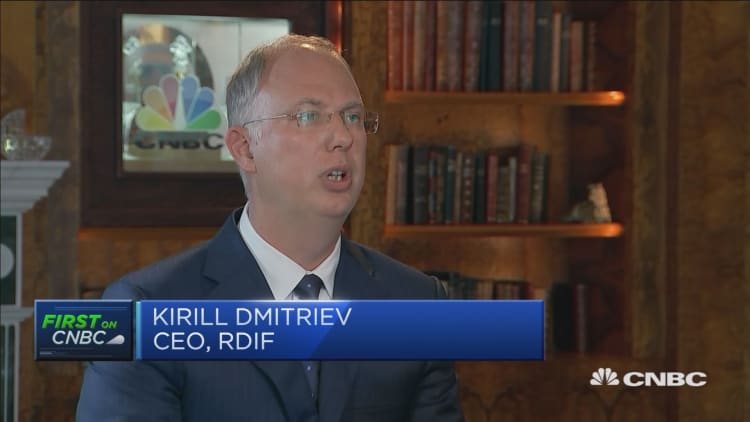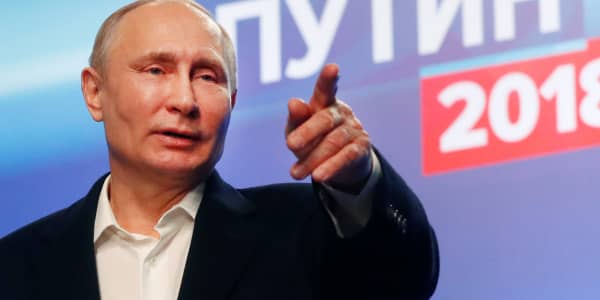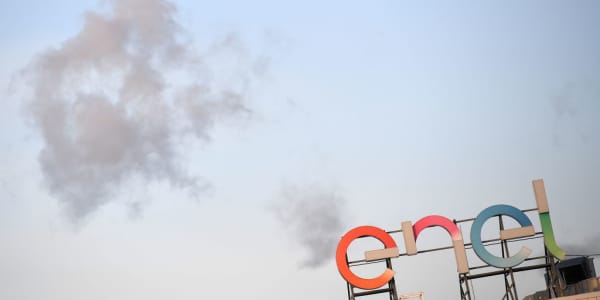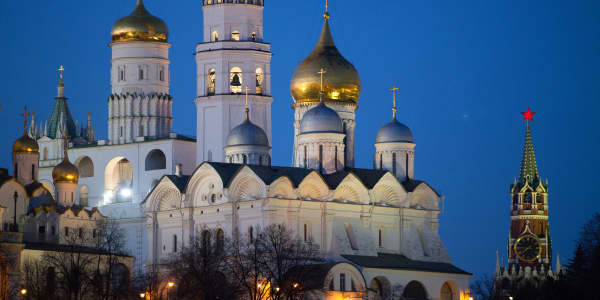
U.S. sanctions haven't scared off international businesses from investing in the Russian Federation, the head of Russia's investment fund said at the St. Petersburg International Economic Forum on Wednesday.
"Existing restrictions don't preclude from co-investing with us, from meeting with us," Kirill Dmitriev, the chief executive of the Russian Direct Investment Fund (RDIF) told CNBC's Geoff Cutmore, describing a raft of new investment deals signed at this year's forum, which brings together thousands of guests and aims to promote business opportunities in Russia.
Dmitriev cited 12 new deals announced at the event, including six with France.
Asked if he was worried about potential expansion of U.S. Treasury sanctions onto the RDIF, Dmitriev didn't appear nervous.
"As a sovereign wealth fund, sanctioning us strongly would create a precedent for other sovereign wealth funds to really pull their money out of the U.S. economy," he said. "We believe that, frankly, sanctions are just a ridiculous thing to begin with, and business is against sanctions. But regardless of that we'll continue to work with top investors all over the world."
RDIF is the $10 billion sovereign wealth fund created by the Kremlin to co-invest in the Russian economy alongside other countries. Dmitriev was made chief of the fund in 2011 to improve foreign investment flows and investor confidence in the country, particularly among Westerners.
'Good for preventing a third world war'
The U.S. Treasury in April announced fresh sanctions on seven Russian oligarchs and 12 companies they control, plus 17 top Russian officials in response to what it called "destabilizing activities" — these include cyber attacks, Moscow's support for the Syrian regime of Bashar Assad, human rights violations and meddling in the 2016 U.S. election. Relations between the two countries are said to be at their lowest level since the Cold War.
Of the investment deals, "None of this is restricted activity," said Dmitriev, who has frequently called for keeping economics and politics separate as a means of improving relations. "We believe we are doing good for our countries, because we are building economic and investment bridges that make our countries have good discussions and understand each other much better."
Foreign investment in Russia has dropped since the 2014 imposition of Western sanctions over Moscow's invasion of Ukraine's Crimean peninsula. While it's now recovered from the deep recession that followed, Russia's economic growth forecast remains tepid at around 1.5 to 2 percent and reforms are badly needed to improve anemic productivity and investment levels.
Russian President Vladimir Putin recently announced a 4 percent growth target, admitting that significantly increased investment would be required to reach it.
Dmitriev expressed hope for improved Russia-U.S. relations, but warned that the current climate was not conducive to that.
"There is an increased risk of confrontation... I think people need to understand the trajectory of our relations right now, it's pretty bad. If it continues to deteriorate, it's a pretty negative trajectory."
"We're believers that, frankly, lots of people need to try to make the U.S.-Russia issue better," he added. "It's good for preventing a third world war, and it's good for developing the world economy in a more risk-free and positive manner."





